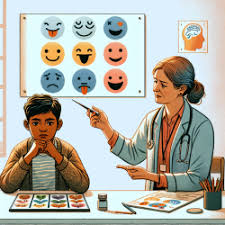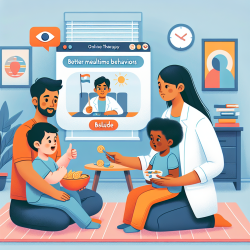Introduction: A New Horizon in Child Therapy
In the ever-evolving field of speech-language pathology, practitioners are constantly seeking innovative methods to enhance therapeutic outcomes for children. One promising avenue is the integration of pharmacogenetics into treatment plans, particularly for children with psychiatric disorders. This approach, supported by research such as the study on the positive perception of pharmacogenetic testing for psychotropic medications, offers a personalized approach to medication management that could revolutionize therapeutic interventions.
Understanding Pharmacogenetics
Pharmacogenetics is the study of how genetic differences affect an individual's response to drugs. This field holds immense potential in psychiatry, where the variability in drug response is a significant challenge. By understanding a child's genetic makeup, clinicians can tailor psychotropic medication prescriptions to minimize side effects and maximize efficacy, leading to more stable and effective therapy sessions.
Research Insights: Positive Perception Among Students
The study titled "Positive perception of pharmacogenetic testing for psychotropic medications" surveyed undergraduate science and medical students in Southern Ontario. Despite concerns about privacy and potential discrimination, 90% of respondents supported the use of pharmacogenetic testing to guide medication choices for schizophrenia, highlighting a strong belief in its potential benefits.
Implications for Practitioners
For speech-language pathologists and other child-focused practitioners, these findings underscore the importance of staying informed about pharmacogenetic advancements. By incorporating genetic testing into their practice, clinicians can offer more personalized care plans that consider the unique genetic profiles of their young clients.
- Improved Medication Management: Tailoring medications based on genetic information can reduce adverse effects, ensuring children remain engaged and responsive during therapy.
- Enhanced Therapeutic Outcomes: With optimized medication plans, children are more likely to achieve their therapeutic goals, improving overall developmental trajectories.
- Data-Driven Decisions: Pharmacogenetics provides a robust framework for making informed, evidence-based decisions in clinical practice.
Encouraging Further Research
While the potential of pharmacogenetics is vast, continued research is essential to fully realize its benefits. Practitioners are encouraged to engage with ongoing studies and consider participating in research initiatives to contribute to this growing body of knowledge.
Conclusion: A Call to Action
As we strive to improve outcomes for children, integrating pharmacogenetic testing into therapeutic practices represents a significant step forward. By embracing this innovative approach, practitioners can offer more effective, personalized care that meets the unique needs of each child.
To read the original research paper, please follow this link: Positive perception of pharmacogenetic testing for psychotropic medications.










